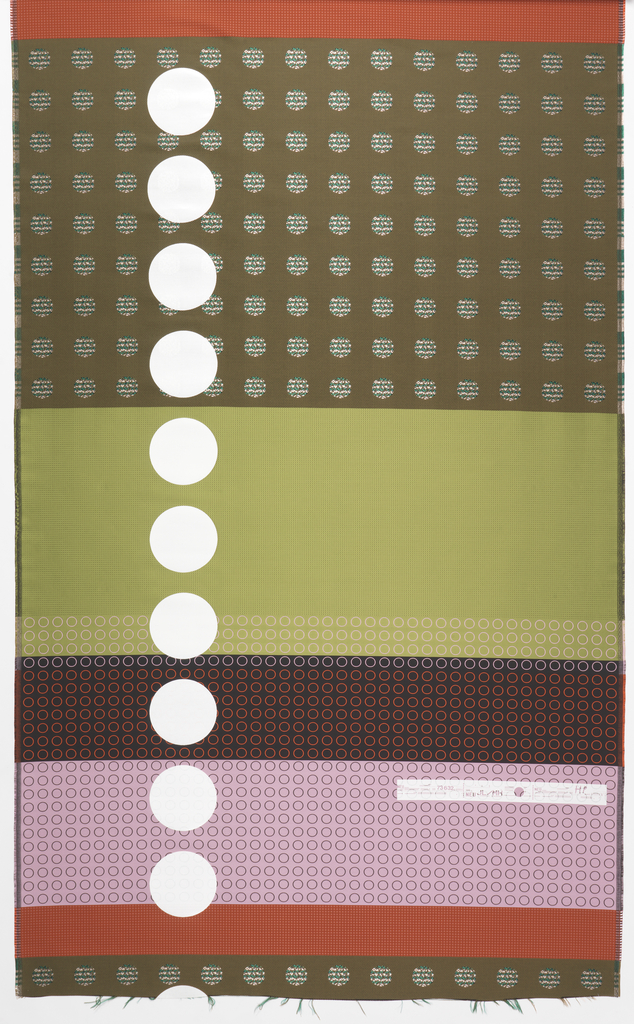Dutch Designer Hella Jongerius has dedicated her career to juxtaposing seemingly contradictory themes in her work: industry and craft, high and low tech, traditional and contemporary influences and modes of creation. She has been featured in exhibitions here at the Cooper-Hewitt, as well as at MoMA and the Design Museum in London, among others. Jongerius creates products at her own design company, Jongeriuslab, and has collaborated on designs with Dutch design collective Droog, as well as with Vitra, Ikea, and the New York-based textile company Maharam.
Jongerius’ work examines whether mass production and hand craftsmanship can indeed go hand in hand. She mixes craft with the industrial process by using a combination of mass production and traditional craftsmanship to create objects that are completely new, from a traditional vase made out of rubber, to lamps and tablecloths that explore materials and production methods, to textiles like her Repeat Dot Print. This piece, which was created as an upholstery textile for Maharam and received the Rotterdam Design Prize in 2002, investigates the idea of individuality and creativity within serial mass production. Using shades of browns, greens and pinks, Jongerius combines a series of horizontal bands of earthy, somewhat romantic colors, some with woven patterns of dots or rings, with a column of over-printed large white dots. With its unusually long cycle of repetition, the design introduces the idea of individuality into a mass-produced product by enabling the creation of one-off furniture items.
Emily Shapiro is a second-year Masters student in the Parsons/Cooper-Hewitt History of the Decorative Arts and Design program. She worked at the Smithsonian Center for Education and Museum Studies for 2.5 years after graduating from Brown University in 2009, and is pursuing research in 20th century fashion and interiors.
